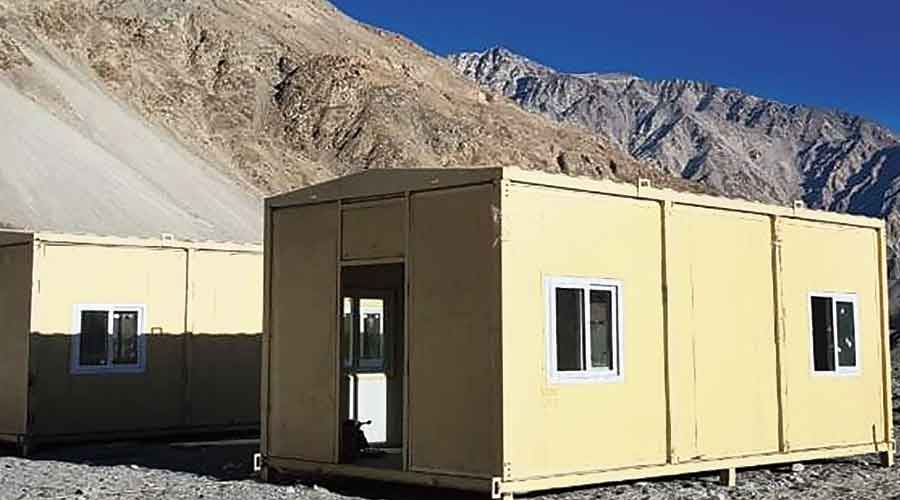China’s army has yet not confirmed dates for fresh military talks, continues to resist India’s demand for disengagement and troop de-escalation from the remaining friction points in Ladakh, and wants India to accept the “new” frontier created by its transgressions, sources in the security establishment said.
“The Chinese appear unwilling to confirm new dates for military talks; they have not yet responded to India’s request for talks. They are keeping us waiting, and want India to accept the ‘new’ Line of Control in Ladakh,” a security official attached to the Union home ministry told The Telegraph.
Retired generals said an emboldened China was refusing to budge from the Depsang Plains or Gogra and Hot Springs because India had conceded too much in the Galwan Valley and the Pangong Lake, retreating within its own territory while leaving the Chinese still entrenched within India-claimed lines.
A military veteran said the situation was detrimental to India’s sovereignty.
“It’s shocking that the political leadership has been maintaining a stony silence, with the pro-government mainstream media successfully deflecting attention from this serious issue,” he said.
A defence ministry official said: “Under a pact in February, the Chinese had agreed to work towards a disengagement process for the Depsang Plains and Gogra and Hot Springs. But now they don’t seem interested at all — they appear to have gone back on their word.”
It has been more than two months since the two armies had “inconclusive” talks on April 8. Sources said that at that meeting, China had repeated its claim about the occupied zones in the Depsang Plains, Hot Springs and Gogra being Chinese territory and asked Indian troops to retreat further within India-claimed lines, as at the Pangong Lake and the Galwan Valley.
At the strategically crucial Depsang Plains, the Chinese are entrenched 18km inside India-claimed lines and continue to cut off the Indian Army’s access to five traditional patrolling points.
In Hot Springs and Gogra, the Chinese are said to have built infrastructure including army camps.
Pangong ‘haze’
Even the disengagement and de-escalation at the Pangong Lake remains “hazy” after India and China moved back 5km each from their positions on the north and south banks under a process that began on February 10, veterans said.
According to the agreement, neither side can patrol areas within the 10km-wide buffer zone until the two countries have worked out all the modalities in diplomatic and military talks.
Military veterans say this means the government has handed over more Indian territory to the Chinese on a platter.
“India played into China’s hands by agreeing to vacate the dominating Chushul heights on the Kailash Range first as part of the disengagement process at the Pangong Lake. That was a blunder,” a former lieutenant general said.
He said the emboldened Chinese were now prolonging the disengagement dialogue while setting conditions.
“So far they have refused to disengage if their demands are not met. Even at the Pangong Lake they can always come back to their earlier positions considering the heavy presence of the Chinese army on the edge of the buffer zone,” he said.
What appeared an early suggestion about China’s ownership of whatever territory it is ensconced in had come almost a year ago, and from an unexpected quarter.
Four days after a clash at the Galwan Valley killed 20 Indian soldiers and four Chinese on June 15, 2020, Prime Minister Narendra Modi had asserted that no one had occupied or was occupying Indian territory, allowing Beijing to dismiss allegations of border transgressions.











